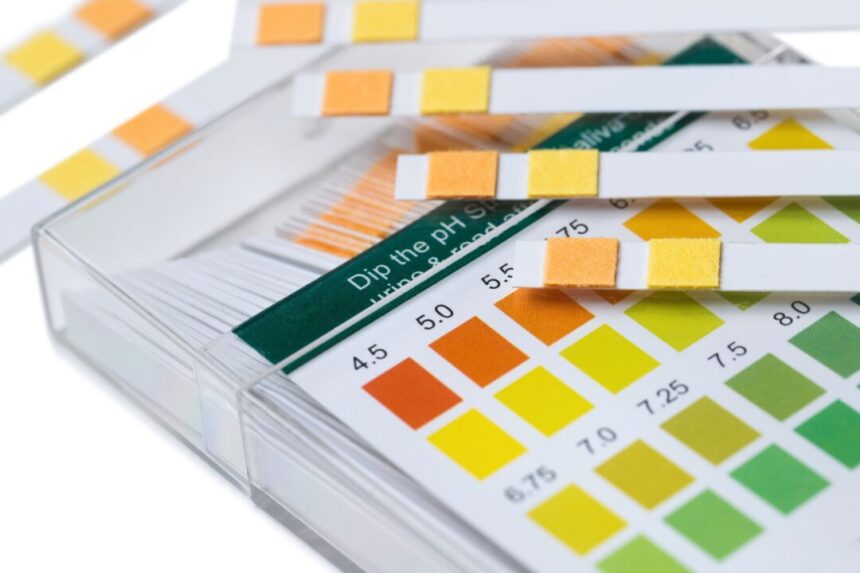Maintaining proper acid-base balance is essential for the normal functioning of almost all bodily systems. Any disruptions to this balance can result in a wide range of disorders.
Studies have linked high dietary acidic loads to various illnesses, including an increased risk of cancer. The topic of acid-base homeostasis has been a subject of debate among healthcare professionals, dieticians, and individuals interested in health for many years.
While literature on the subject is abundant in Germany and other European nations, it may be less prominent in the United States. However, recent studies in the US have highlighted the importance of maintaining a balanced pH level for overall health.
If you are feeling off without a clear reason, such as experiencing unexplained aches and pains, stiffness in joints, headaches, heartburn, muscle soreness, or weakened immune system, it could be due to an imbalanced pH level.
The body’s metabolic system has three main functions: capturing energy, converting food into essential building blocks, and removing waste products. Acid-base homeostasis is crucial for the metabolic system to perform these functions effectively, keeping the pH level in extracellular fluids within a range of 7.35 to 7.45.
Disturbances in acid-base balance can lead to various disorders, including an increased risk of type-2 diabetes, insulin resistance, osteoporosis, and chronic metabolic acidosis. Maintaining a balanced pH level is critical for overall health.
Daily food choices can affect the body’s pH balance by producing or consuming acids. When the body is bombarded with a high dietary acid load, various systems, including the digestive, respiratory, eliminatory, muscular, and skeletal systems, may be adversely affected.
Connective tissue plays a crucial role in transporting nutrients and waste in the body. High dietary acid loads can lead to toxins being stored in connective tissue, potentially causing damage to organs and systems like the musculoskeletal system, lungs, and kidneys.
Research has shown associations between high dietary acid loads and conditions such as non-alcoholic fatty liver disease, cardiovascular disease, hypertension, diabetes, chronic kidney disease, bone-related disorders, and cancer. Maintaining a balanced pH level through diet rich in base-yielding vegetables and fruits is essential for health and homeostasis.
In conclusion, maintaining acid-base balance is vital for overall health, and imbalances can lead to a range of health issues. Making dietary choices that support a balanced pH level is crucial for preserving health and preventing chronic diseases. The link between dietary acid loads and an increased risk of inflammation and lung cancer was directly established in recent research findings. A systematic review published in the European Journal of Cancer Prevention in 2022 highlighted the elevated cancer risk associated with acid-rich diets. Additionally, a meta-analysis published in the journal Frontiers in Nutrition in 2022 confirmed this risk across genders and age groups.
Furthermore, studies have shown that high acidity in the body can lead to cardio-metabolic diseases like hypertension, atherosclerosis, and Type-2 diabetes. Research has indicated that dietary choices significantly impact the development of these diseases, with individuals already suffering from hypertension and diabetes showing a higher acid-forming potential.
Moreover, there is a growing body of evidence linking dietary acid loads to other health issues such as insulin resistance, obesity, and mental health problems. Studies have highlighted the importance of monitoring and reducing dietary acid loads to improve overall health outcomes. The use of tools like the PRAL-index can help individuals and practitioners track and manage their acid intake for better health. Chlorides play a crucial role in our bodies by facilitating the movement of water and nutrients in and out of our cells, maintaining fluid balance, regulating blood pressure and pH, supporting muscle contraction, and aiding nerve cell function. Additionally, they help exchange oxygen and carbon dioxide and assist in the digestion process.
It is essential to pay attention to the amount of acids in our bodies. According to the European Food Information Council, the recommended daily intake of chloride for healthy adults is 3 grams, which is roughly equivalent to 5 grams of table salt. Foods like shrimp can provide a significant amount of chloride, with 100 grams containing 189 percent of the daily value, while other foods like carrots only contribute a small percentage.
Maintaining a balanced dietary acid load is crucial for overall health, as high acidity levels can lead to illness. If you are looking to learn more about managing hyperacidity and its associated toxicity through dietary and lifestyle changes, stay tuned for an upcoming article that will cover home-testing for acidity and provide valuable dietary information.
Source link





